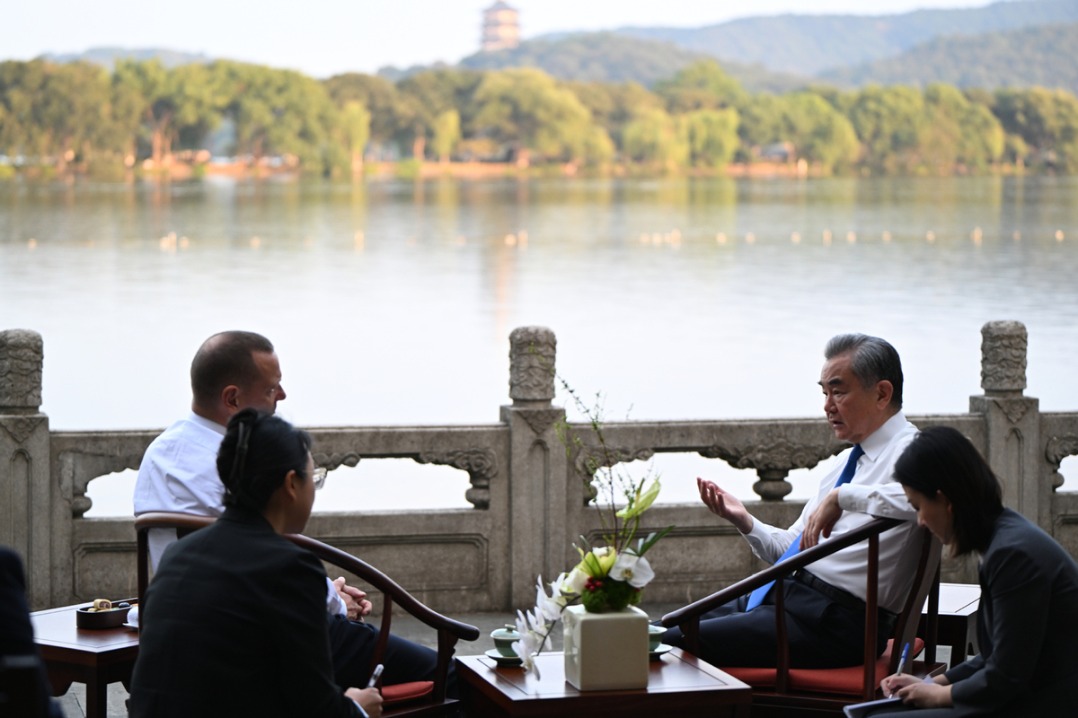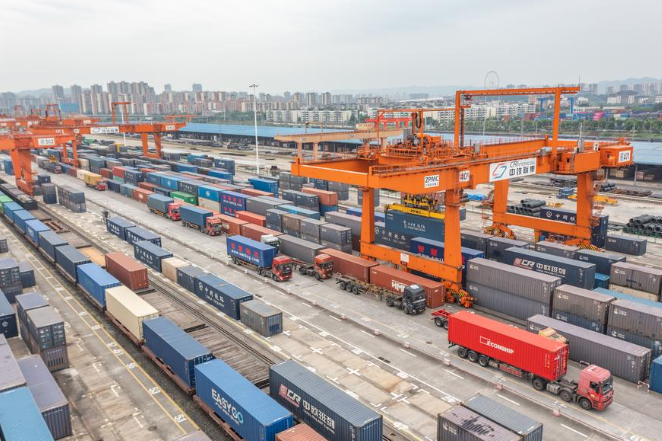Tariffs not a cure-all
Europe has not aligned with the US in its trade war against China but wants strategic autonomy, sustained prosperity through prudence, dialogue, Xing Yi reports in London.


Jian Junbo, director of the Center for China-Europe Relations at Fudan University in Shanghai, said the EU's steel tariffs show the rise of protectionism in the bloc, but are not directly targeting China.
"The EU's economy was already hit by Trump's global tariffs war earlier this year, and it would not want to open another front of tariff war with China," Jian said.
And he noted the attitude toward China among the bloc's 27 members varies.
"Countries like Germany, which have strong trade with China, don't want to see China-EU relations worsen. And France, which is one of the five permanent members of the UN's Security Council, emphasizes political communication with China."
Southern and Eastern European economies, including Spain, Hungary, and Serbia, see China as a source of investment for infrastructure and renewable projects.
"These varied priorities make it difficult for Brussels to adopt a single hard-line trade position — and they explain why the EU prefers 'de-risking'," said Jian. "Economic relations were so deeply interdependent that it is impossible for China and Europe to 'decouple'."
China is the EU's second-largest trading partner for trade in goods, after the United States.
Meanwhile, the EU is China's second-largest trading partner, after the ASEAN bloc.
Bilateral trade in goods between China and the EU reached 732 billion euros ($846.9 billion) in 2024. However, the EU had a trade deficit of 305.8 billion euros, according to the European Commission.
Cameron Johnson, a senior partner at Shanghai-based consultancy Tidalwave Solution, said European countries want to solve this trade issue, but "unlike the US, Europe actually has a lot more to lose with China", such as the internal Chinese market, as well as Chinese investment into the European Union.
"The reality is that a tariff solution is very painful, and it doesn't solve the problem," he said.
With more than 20 years of management experience across various industries in China, Johnson noted that chemicals, automotive, and pharmaceuticals are the three main sectors that European companies have strong involvement in within China, and Chinese enterprises produce a lot of intermediate inputs and goods for products for European companies.
According to a report by Rhodium Group, Chinese FDI in the EU and UK reached 10 billion euros in 2024, up 47 percent on the previous year, and Europe captured 53.2 percent of Chinese investment in high-income economies.
The growing amount of Chinese investment in Europe was partly because of funding being diverted from the US because of the ongoing tension between the world's two largest economies, and the trend continues in 2025 after Trump signed an executive order in February to restrict investment from China in US technology, critical infrastructure, and energy.
Johnson said while the US will want Europe to hold the line in trading with China, particularly in things like semiconductors, Europe will also be closely watching the ongoing China-US trade talks, and studying what the US and China give each other.
"If the US gives up a few technology restrictions to China and gets something in return, Europe might want to do something similar and vice versa with China as well," he added.
Nevertheless, the EU faces powerful coercion from the US.

































